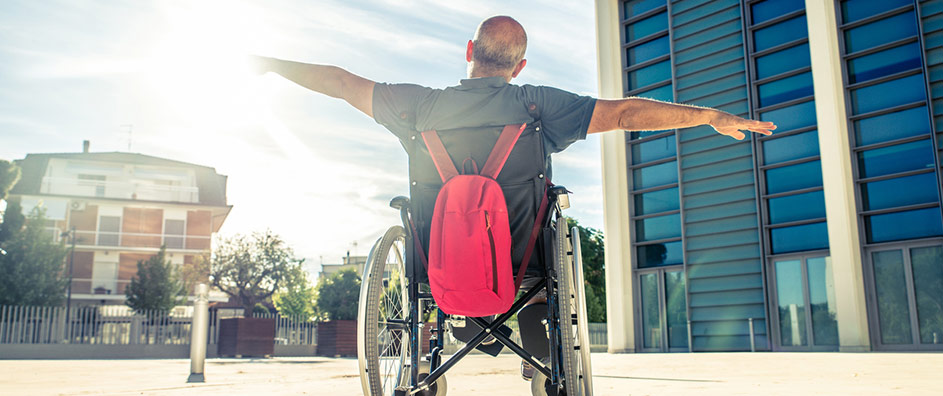The discussion surrounding the terminology we use to address individuals with disabilities has garnered significant attention in contemporary discourse. This fascination is not merely a superficial engagement with language; it reflects deeper societal values and the philosophies underpinning our interactions with one another. From the Bahá’í perspective, language is more than a means of communication; it is imbued with power and carries the weight of responsibility. The words we choose can either empower individuals or perpetuate stigma, thereby impacting societal attitudes and behaviors towards those with disabilities.
Words such as “crippled,” “disabled,” and “handicapped” evoke distinct connotations, often reflecting historical contexts that inform contemporary perceptions. The terminology used to describe disabilities is subject to constant evolution. This evolution is driven by a growing awareness of the implications language has on identity, self-worth, and societal inclusion. As adherents of the Bahá’í Faith, one must recognize the critical role language plays in fostering a sense of dignity, respect, and equality for all individuals.
To begin with, it is essential to explore the term “crippled,” which carries with it a history of derogatory usage and often conjures images of limitation and inability. This word can be disempowering, overshadowing the strengths and potential of those it describes. From a Bahá’í perspective, such terminology contradicts the teachings that advocate for the recognition of intrinsic worth in every individual. The importance of affirming the agency of all people aligns with the belief that every person has a unique purpose and mission in life.
In contrast, the term “disabled” is frequently employed in more modern contexts and is often viewed as a neutral descriptor. However, it too can carry implications that promote a societal view of individuals as lacking or lesser than their able-bodied peers. Those within the Bahá’í community understand that such perceptions can hinder the progress of individuals and communities alike, perpetuating barriers to full participation in social life. Embracing the concept of disability as part of the diverse tapestry of human experience necessitates an evolved understanding that celebrates differences rather than diminishing them.
Furthermore, the word “handicapped” is another term fraught with complexities. Its origins lie in the notion of disadvantage, but its use has waned over time due to its pejorative undertones. The Bahá’í teachings emphasize the importance of uplifting individuals and communities, underscoring the necessity to move beyond language that reinforces negativity. To truly honor the principle of oneness, one must strive to utilize language that fosters inclusion and understanding.
The Bahá’í Faith teaches that words are instruments that shape reality. As such, selecting language that conveys respect and compassion for all individuals is paramount. Every uttered term can either fortify a sense of belonging or alienate those who are often marginalized. The language of empowerment encourages individuals with disabilities to embrace their identities with pride and self-affirmation. The words chosen in discourse and dialogue can be transformative, influencing not only individual self-concepts but also societal narratives surrounding disability.
Moreover, cultivating an awareness of the potency of language requires introspection and intentionality. Individuals are called to examine their own biases and preconceived notions that may inadvertently seep into their speech. Such a reflective approach aligns with the Bahá’í commitment to personal and collective growth. Ensuing conversations about disabilities necessitate a space for individuals to share their experiences and perspectives, affirming their humanity and uniqueness.
When we consider frameworks for language in discussing disabilities, inclusive terminology emerges as a fundamental tenet. The adoption of person-first language serves as an effective means of emphasizing the individual rather than the disability. For example, referring to “a person with a disability” rather than labeling someone solely by their condition fosters an understanding that encapsulates the entirety of their identity and capabilities. This approach aligns harmoniously with the Bahá’í emphasis on the spiritual nobility inherent in every human being.
In addition, advocating for the use of affirmative language within discussions of disability is vital. Terms that highlight the abilities and strengths of individuals rather than focusing on limitations can significantly shift narratives. Words such as “differently-abled” or “neurodiverse” offer more empowering connotations while recognizing the diversity of human experiences. These alternatives invite deeper engagement with the unique gifts each individual brings to the world, echoing the Bahá’í principle of universal participation and contribution.
The imperative for ethical language extends beyond individual conversations; it permeates institutional practices, media representations, and societal policies. An obligation exists within the Bahá’í community to advocate for systems and structures that reflect inclusive language and foster equitable treatment for individuals with disabilities. Such advocacy is rooted in the belief that creating a just society requires an unwavering commitment to dismantling barriers, both physical and linguistic.
Consequently, the use of language in discussions about disabilities transcends mere semantics; it denotes a profound ethical responsibility. Stepping into this responsibility requires engaging with the complexities of identity, cultivating an appreciation for diversity, and striving to elevate the voices of those with lived experiences. The influence of language serves as a mirror to society’s values and beliefs and is a critical catalyst for change.
In conclusion, the exploration of terms like “crippled,” “disabled,” and “handicapped” invites a deeper understanding of the power that language possesses. The Bahá’í teachings underscore the need to wield this power with caution and intention, recognizing the potential for words to uplift or diminish. A commitment to inclusive, affirmative language not only honors the intrinsic worth of every person but also fosters a more just and compassionate society. Through deliberate choices in word usage, society can pave the way for transformative dialogues and genuine connections, enhancing the shared human experience for all.
